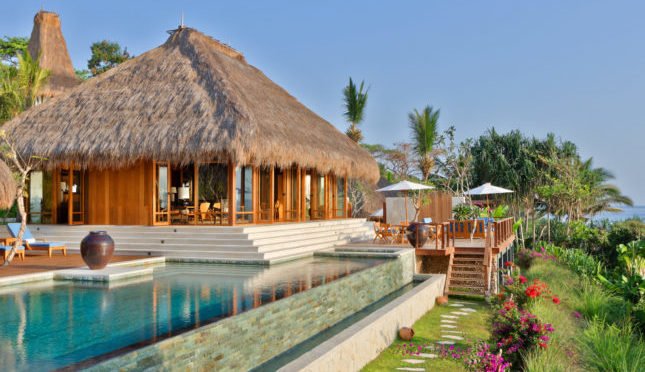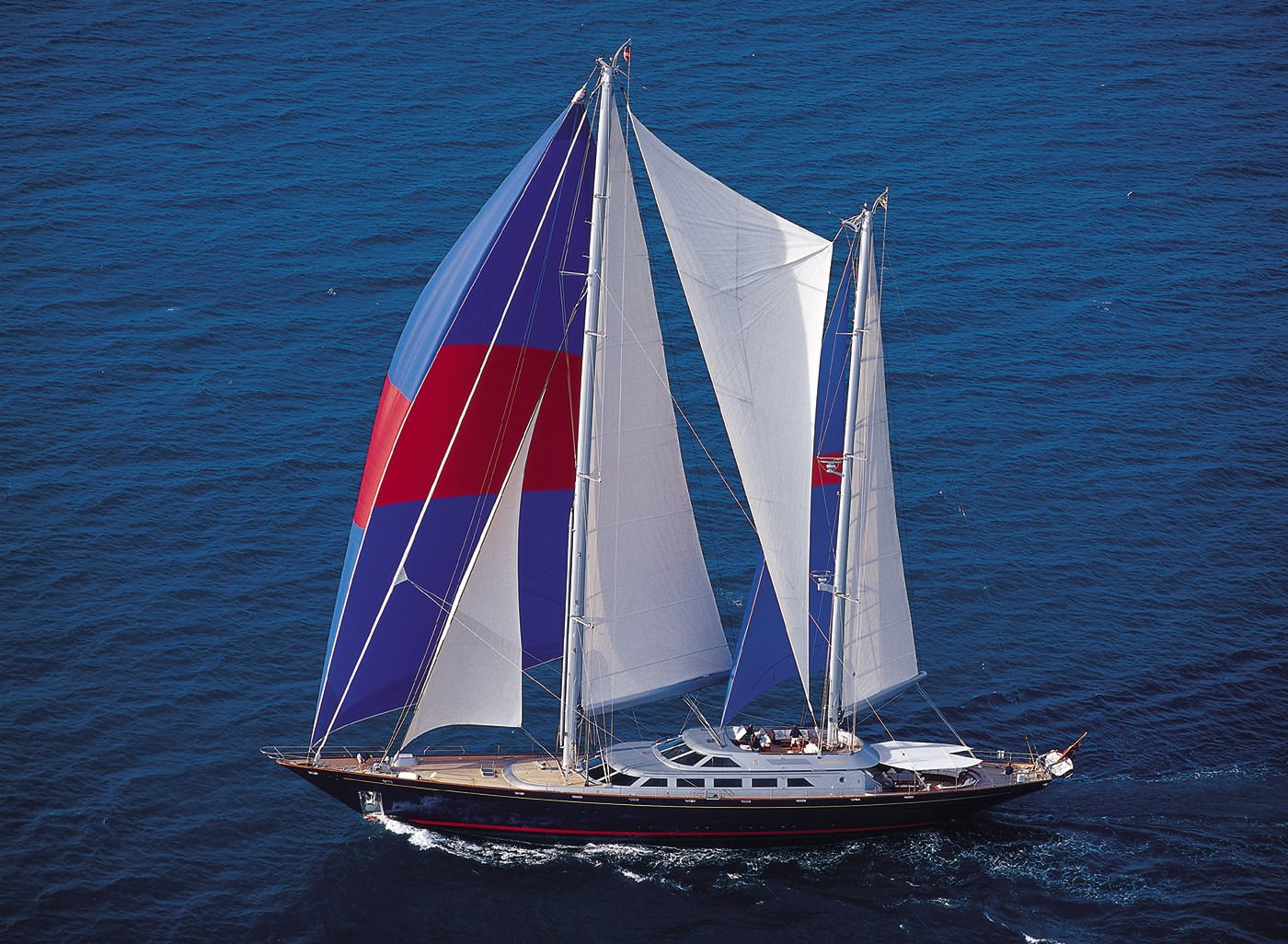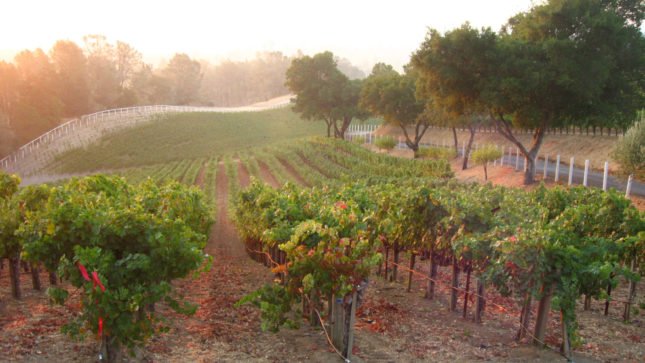As an avid skier and outdoors enthusiast, private equity titan Wes Edens had long frequented Jackson Hole, Wyoming. So, several years ago, the Fortress Investment Group cofounder began thinking about buying a home in the wealthy destination. But there was a problem. Edens, a native Montanan, had stayed in virtually every upscale hotel and residential development in the valley, but couldn’t reconcile investing much into a limited-use property. “I didn’t want to be the guy who bought an expensive house that was just used a couple of weeks a year—that just seems like a bad idea,” he says, arguing that even the most beautiful home would need to offer an array of concierge services and resort amenities to make it worth his while. That’s how, in 2012, Edens decided to become a hotelier.
“My thought was it’d be great to develop with some friends a boutique hotel that would serve both as a home when I’m out there as well as a wonderful place for friends, family and others to enjoy,” he says. With friends Mike Novogratz, a Fortress alum, Fortress board member David Barry and Fortress cofounder Randal Nardone, Edens set out to create his ideal mountain resort. Seven years after he purchased a property in the heart of Teton Village—as close as it gets to the famous tram that takes visitors to the top of Rendezvous Mountain—he is enjoying the first full year of his eight-room hotel and private ski club, Caldera House.


The hotel business is tough for old pros, much less newcomers, but Edens has a reputation for betting against the odds. (One of his firm’s projects is Virgin Trains USA, a $2 billion railroad project in car-centric Florida.) His personal foray into hotel ownership is no different. Though a luxury hotel in Jackson Hole might seem like a sure thing, the reality was more complex. “Creating a building of this quality and complexity in a resort town is not a job for the faint hearted,” says Edens.
The same can be said about hotel development in general, and yet more individuals are getting into the small hotel game than ever before. Boutique is one of the fastest-growing segments in the hospitality industry, according to hotel data firm STR, Inc., generating more than $20 billion in revenue in 2018—and independent hotels make up a large portion of that category. Many highly praised boutique hotels are the passion projects of individuals like Edens. “It allows them to do something very creative that has tangible results and experiences for people,” says Ian Nicholson, a 30-year industry veteran and founder and CEO of Partners & Alchemy, a New York-based hospitality consulting firm.
Still, the move is not without its risks. If you’ve ever considered the idea of starting your own small luxury hotel, here’s what you need to know.
IT WILL COST MORE THAN YOU THINK

“Nine out of 10 deals—new construction, conversions, whatever—fail not because the idea is bad, but because they are undercapitalized,” emphasizes James McBride, partner and CEO of Nihi Hotels, whose 33-room flagship Nihi Sumba in Indonesia was selected in 2016 and 2017 as the world’s best hotel by Travel + Leisure. “How it’s underwritten may also be inappropriate. They are taking too much debt, they are paying too much for the debt, they have too many partners that can’t agree—it really all boils down to the capital source.”


So how much money should you have to get started? It’s nearly impossible to pin down a general figure due to all the variables associated with any project—location, size, purchase price, programming and services. Edens, for example, reportedly invested more than $100 million into Caldera House, which demanded acquiring and tearing down a property to create a new one. (“Bad building, great real estate,” Edens says). By comparison, McBride and his business partner, entrepreneur Christopher Burch, spent $35 million on Nihi Sumba in Indonesia—a redevelopment and expansion of the pre-existing Nihiwatu surf resort.
Ian Nicholson projects that a U.S.-based 20-room luxury hotel with a restaurant would require a minimum investment of somewhere between $6.6 million and $8.6 million excluding land and acquisition costs, according to rough estimates verified by Gardiner & Theobald, a property and construction consultancy. “You have to define acquisition costs,” says Nicholson, who as former CEO of Faena Hotels spearheaded the development of the Faena Hotel Miami Beach and its surrounding district. “Once that’s done, we can work on a development budget that includes hard construction costs. That varies from rehabilitating an existing building at $200 to $350 per square foot, to a new build that would be $450 to $600 per square foot, depending on where in the country it’s located.”
RENOVATION IS NOT ALWAYS EASIER

Norwegian-born billionaire investor Alex Vik and his wife, Carrie, have spent the last 10 years developing Vik Retreats, an assortment of five luxury properties in Uruguay and Chile that have earned numerous awards and a global following thanks to a distinctive focus on art and design. Every room in every hotel is different, and the Viks decorate each one personally. “Part of the reason we’re doing it is because we enjoy that whole process,” Alex Vik says. It’s also one of the reasons they chose to build all their hotels from scratch.
But this summer, the Viks are opening the Galleria Vik Milano, an 89-room hotel within the historic Galleria Vittorio Emanuele II in downtown Milan. Taking over what was the TownHouse Galleria hotel, the Viks found themselves needing to work within the restrictions of local and federal authorities. “In a way it’s easier [than building from scratch] because a lot of things are already done, but it’s much harder because you can’t make changes you want,” Vik says. “You can do only what they allow you to do.”
Wes Edens faced similar hurdles while developing Caldera House. “When you build in a pristine location like Jackson Hole, the people there have a very specific view of what you should and shouldn’t do,” Edens says. “There’s a lot more discussion and interaction with permitting folks to get what you want to do approved.”

“Sometimes it’s easier to knock down, but as a general concept, a renovation is far better,” says James McBride. “Though an approval process can be so arduous that you might not end up doing the deal. If you buy an existing business, all that is done, and it makes it significantly easier.”
HOPE FOR THE BEST, PREPARE FOR THE WORST

When it comes to opening a hotel, no matter how much you plan, curveballs abound. McBride, whose hotel expertise before Nihi Sumba included the global expansion of Singapore-based YTL Hotels and regional directorship of Rosewood Hotels, still managed to be surprised while working on the Indonesian property. “Our logistical costs were probably double what we anticipated,” he says of the project’s circuitous shipping route through the Indonesian archipelago that involved numerous cargo planes, inter-island boats and multiple trucks.
And you don’t have to be in a remote island to hit a quagmire, as Edens found out in Jackson Hole. “When we dug for the foundation we literally found quicksand,” he recalls. “I never thought we’d have to fortify a foundation in the Tetons, which is all granite.”
According to Nicholson of Partners & Alchemy, such unforeseen obstacles are common and should be expected. “We often see people not allowing for contingencies in hard and soft costs,” he says. “You’ll want to have at least 5 to 10 percent on the total cost of construction, and you would do the same thing on the soft cost side as well. So if you have a major miss in the budget, you’ll have some cushion to overcome those challenges.”
Another frequent misstep, says Nicholson, is underestimating pre-opening expenses—marketing collateral, hiring staff, website development. Payroll and marketing alone may run from $10,000 to $29,000 per room, depending on how large the hotel is and its level of positioning.
DON’T GIVE UP ON YOUR VISION, BUT BE WILLING TO EVOLVE

Having a clear vision and executing on it is key to the growth and success of any property—whether success to an owner means making a profit or simply breaking even. McBride and Burch never expected Nihi Sumba to be profitable; it was their passion for developing what they considered the most beautiful spot on earth that drove the project, which Burch single-handedly funded. “We’ve been profitable for the last four years,” McBride says, adding that the resort’s traditionally largest draw, its beach and surf breaks, is being overtaken by its equestrian facilities. “Horses are probably bigger than surfing now. It’s just taken a life of its own.”
Alex Vik finds himself in a similar situation, with niche hotels that allow him and his wife to exercise their passion for art, and for which profitability comes second. “We’re not doing it on an ROI spreadsheet basis,” he says, though he cautions that “the economics of the business will work if you do a good job and execute on your plans. It won’t work as a passion project if it’s financially unsuccessful—it’ll just be a headache.”

Wes Edens took on Caldera House because of his personal connection to Jackson Hole and his need for an alternative to a vacation home. While it’s too soon to expect a profit, Edens considers Caldera House a triumph. “We really built it as a home to go to. There’s been a lot of positive reaction, and I’m very happy about that. But for the reasons I did it in the first place, it is already a success.”
GETTING STARTED
Interested in becoming a hotelier? These six resources will help you learn more.
Partners & Alchemy, a hospitality consultancy, [email protected], 212.498.9882, partnersandalchemy.com
International Society of Hospitality Consultants, a resource for finding hospitality consultants and related advice, Andrea Belfanti, executive director, [email protected], 678.973.2242, ishc.com
American Hotel & Lodging Association, a resource for hospitality owners and operators, [email protected], 202.289.3100, ahla.com
STR, a hospitality analytics firm, [email protected], 615.824.8664, str.com
Gardiner & Theobald, a property and construction consultancy, [email protected], 212.661.6624, gardiner.com/us
Commune, an LA-based design & architecture firm that contributed to Caldera House, 310.855.9080, communedesign.com









